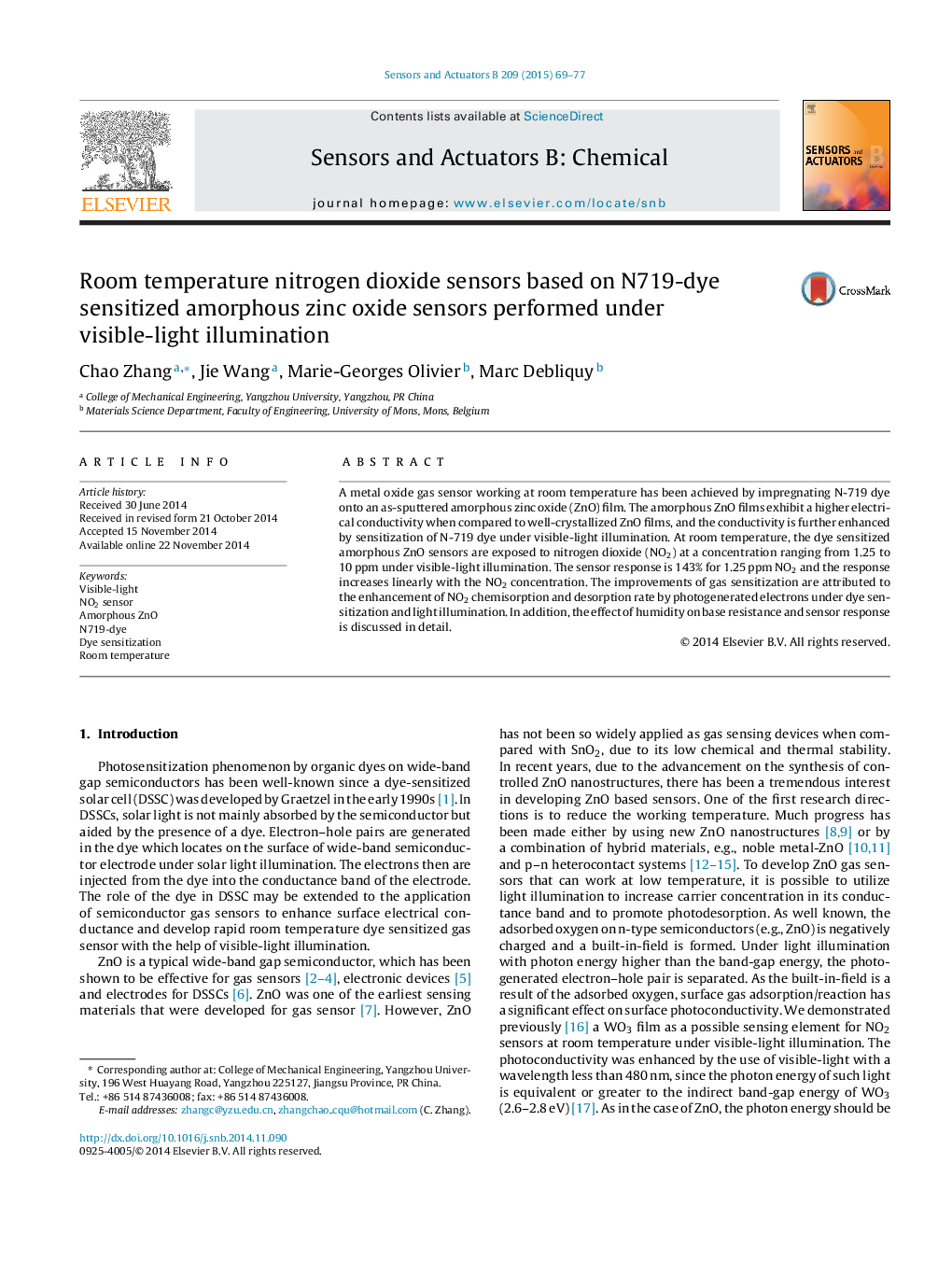| Article ID | Journal | Published Year | Pages | File Type |
|---|---|---|---|---|
| 7146011 | Sensors and Actuators B: Chemical | 2015 | 9 Pages |
Abstract
A metal oxide gas sensor working at room temperature has been achieved by impregnating N-719 dye onto an as-sputtered amorphous zinc oxide (ZnO) film. The amorphous ZnO films exhibit a higher electrical conductivity when compared to well-crystallized ZnO films, and the conductivity is further enhanced by sensitization of N-719 dye under visible-light illumination. At room temperature, the dye sensitized amorphous ZnO sensors are exposed to nitrogen dioxide (NO2) at a concentration ranging from 1.25 to 10Â ppm under visible-light illumination. The sensor response is 143% for 1.25Â ppm NO2 and the response increases linearly with the NO2 concentration. The improvements of gas sensitization are attributed to the enhancement of NO2 chemisorption and desorption rate by photogenerated electrons under dye sensitization and light illumination. In addition, the effect of humidity on base resistance and sensor response is discussed in detail.
Related Topics
Physical Sciences and Engineering
Chemistry
Analytical Chemistry
Authors
Chao Zhang, Jie Wang, Marie-Georges Olivier, Marc Debliquy,
